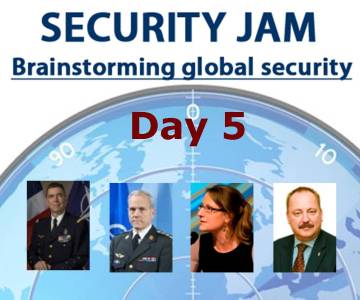
This is the second part of the ISN report on Security Jam 2012 presenting the most interesting ideas discussed in last four forums. You can find the first part here.
Facing the Cyber-Challenge
Cyberspace has permeated nearly all aspects of modern life and the security concerns that arise as a result have been the topic of the forum. It was no surprise that this forum had the most threads – 84 in total.
As Jammers pointed out, ‘cyberspace is so much to so many’ and there is general agreement that much needs to be done to achieve and maintain cyber safety. Since we need to start from somewhere, however, the question remains: Who should take the lead? The UN, EU, NATO, industry, NGOs or nations? As one question arises, others follow: At what level does a cyber-attack become so serious that we could feel justified in retaliating with cyber or other weapons, or in trying to hunt down the aggressor and subject him to some form of punishment or make him pay compensation for the harm which was done?




